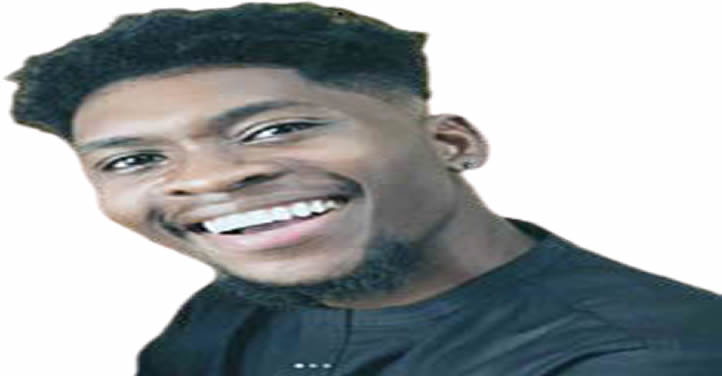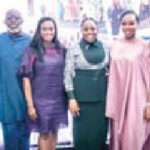
The Chief Executive Officer of Yellowlyfe Company, Seyi Olaniyan, tells JOSEPHINE OGUNDEJI about his career and other issues
What influenced your decision to veer into the lifestyle and tourism sector?
It was accidental. Yellowlyfe started as a blog. The simple story is that I did an event without any brand name, and almost 150 people attended. I leveraged on that, and it birthed the company.
Also, I realised that many people were paying less attention to work-life balance, because they did not even understand what it meant. Work-life balance is way past getting paid at the end of the month. It also requires that one pays attention to one’s family and self-care. There are some people who forget their parents because of work. And, before they know it, they lose their parents.
Some people are so lost in the work that they are doing, and before they find themselves back, a year has gone. Work-life balance advocates prioritising oneself to be even more effective.
What do you think is the biggest challenge in the creative industry in Nigeria?
Almost everything creative that one can think of has been done. What is being done now is modification. It is not a challenge, but is also one, because everybody just claims to be modifying things.
However, the major challenge is consistency. A lot of people start things, but very few are still doing them, because when they start, they cannot withstand the pressure. There is a difference between knowing when to start and when to continue. I am not justifying not stopping once there seems to be no light at the end of the tunnel, but sometimes, it is as a result of not cracking that particular ‘executor’ process. The sad thing is that people do not know how to manage failure.
What has been your lowest moment?
The days when we have events and people do not show up are always my lowest moments.
You once mentioned that the company started after the failure of your magazine company. Tell us more about that.
I used to run a magazine company in 2014 during my internship as an undergraduate, and it failed, because of lack of funding and proper team management.
Tell us about your other brands, ‘99broad’ and ‘Moments with Seyi’.
I am a man of many parts. I detest being bored when I run out of ideas. While in school, I was running three different brands concurrently, so it has always been a part of me. I also love to teach by giving back to society and making an impact in the lives of people. That was how Moments with Seyi started.
I used to be a designer, and that was what led to 99broad.
How would you describe your childhood, and in what ways did it mould you into who you are now?
My parents were civil servants, and my dad was a disciplinarian. However, my background did not really influence my business side. That was a result of me knowing that I was not going to use my certificate to eat (work), and I wanted to be a different person. In addition, being in survival mode helped me because, at some point, I had to fend for myself after losing my dad in my third year in the university. Being the firstborn, I had to buckle down to ensure that I was on top of situations.
In a country where there is a high level of distrust of public figures and brands, how can individuals build a personal brand that is authentic and trustworthy?
An authentic brand would always have a brand story. The major reason brands use influencers is because the latter appeal to the emotional side of people, and people would want to buy anything they sell. They might not like the founder of the company, but the influencer triggers the love to patronise the products. If people do not connect to an influencer through a brand, they can connect to the brand’s story or vision.
Some people feel social media has done more harm than good. As an entrepreneur who uses social media to pass your message, what is your take on this?
Everything has its good and bad sides. The way one sees social media is what matters. One has to leverage it to one’s strength.
What is the essential component of a successful brand narrative?
It is dependent on what one wants to be known for, and why one wants to be known for that particular thing. For example, someone who is always dressed corporately might seem ‘too serious’ to some people, while to the person, they are simply making a statement. Hence, the essential component of a successful brand narrative is being intentional about one’s personal branding.
What is your ideation process like?
It depends on what I am doing. I am more of an executioner than a talker. I would rather fail to execute, than contemplate for a while if a project would work or not. Most importantly, my ideas come from conversations with people, surfing YouTube and past experiences.
What would you like to be remembered for?
I would love to be remembered as that guy that spread happiness through different channels, in terms of enjoyment and impact.
Who are the people you look up to?
I look up to God. I always try to be the shadow of myself, rather than being the shadow of someone else. I am just taking life one step at a time; learning from mistakes and from people. I have mentors I get advice from, but saying that I am watching them become, is not it for me.
What would you tell your younger self if you had that opportunity?
I would tell him to be smarter. I know that if I was a lot smarter when I was younger, I would have grown past where I am now. I know that I am an engine room, and I needed to have had more understanding of some things that would have boosted my growth.
How do you measure your growth?
I do that by looking at what I have achieved, because it takes audacity to be where I am. It boils down to knowing who one is, and having the big picture in mind, which would aid one’s growth process.
Creativity is mostly viewed as an asset. Has it ever felt like a burden to you?
It can never be a burden, because one flows from what one has. A river cannot be dried up. Even on the worst days, water would still flow, because the river has a source it is flowing from.
What has been the most defining moment of your career?
The most defining moments of my career are the times when what I planned for months come into fruition, and they look so good.
What advice do you have for young people who want to make a positive impact on their communities?
They have to be clear about the kind of impact they want to make, the direction they want to start from, and the direction they are going, particularly the kind of legacy they want to leave behind.
How do you stay motivated and focused on your goals, especially during times of difficulty or setbacks?
I am my own ‘hype man’. I have a vision of where I want to be in life, and where I am headed. That motivates me to be focused, irrespective of the setbacks I encounter on the way.





